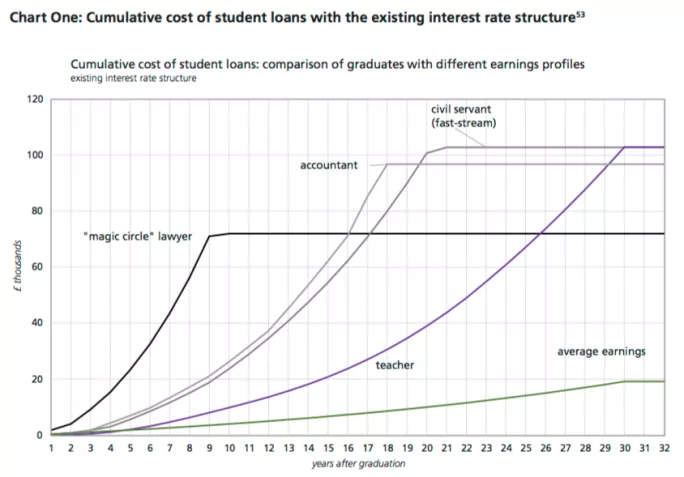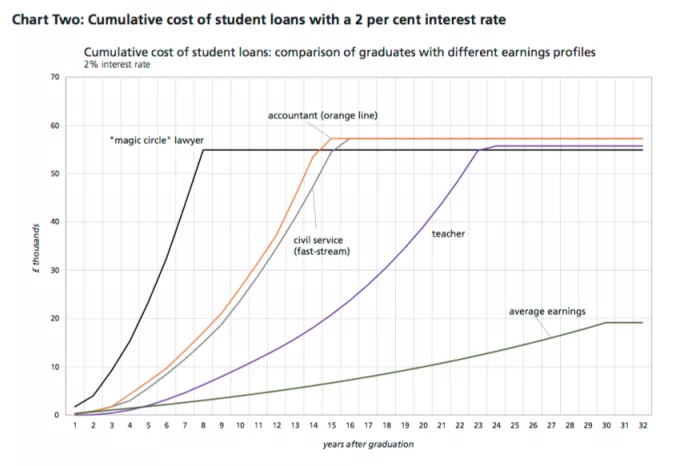Student loans cost teachers £30,000 more than high-flying city lawyers over their lifetimes, research by the Commons Treasury Select Committee shows.
The disparity is caused by above-market interest rates and the fact that people who earn high salaries early in their careers pay their loans back quicker.
Former education secretary Nicky Morgan said the government “must reconsider” the use of high interest rates on student loans as part of its review of post-18 education announced today.
Under the current student loan system, interest rates on student loans exceed the retail price index (RPI) measure of inflation once a person’s income is above £21,000, rising to RPI plus 3 per cent when income hits £41,000.
The government argues that this is progressive, but the select committee found this can leave a teacher who is on a “steady career progression” paying back about £100,000 over their lifetime - compared with about £70,000 for a “magic circle” lawyer.
The system also means that a teacher pays vastly more than someone on average earnings, who would pay back £20,000 over the 30-year course of the loan.
Teachers ‘penalised’
The report says: “High-flying lawyers will generally pay less than teachers; but both will pay more than a graduate who does not receive a pay premium from their time in higher education.”
A second calculation in the report shows that if the interest rate on student loans was reduced to 2 per cent, the gap between teachers and top lawyers would almost disappear.
Ms Morgan, who chairs the Commons Treasury Select Committee, said: “The use of high interest rates on student loans is questionable. The government has justified it on progressive grounds, but the committee remains unconvinced as high-flying graduates may pay less than graduates on more modest earnings.”
She added: “The government must reconsider the use of high interest rates on student loans as part of its review.”
A Department for Education spokesperson said it welcomed the report, which “will be considered as part of the evidence base for the review”.
She added: “We have removed up-front barriers to entry and are seeing record numbers of 18-year-olds from disadvantaged backgrounds now going to university. Furthermore, graduates do not pay back anything until they are earning over £21,000 - rising to £25,000 from April.”
Want to keep up with the latest education news and opinion? Follow Tes on Twitter and like Tes on Facebook






